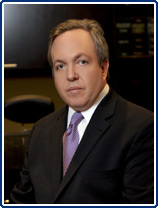FINRA Suspends Stockbrokers For Failing To Comply With FINRA Arbitration Award Or Settlement Agreement May 2022
According to FINRA Disciplinary actions for May 2022, the following individuals were suspended from FINRA for failing to comply with a FINRA arbitration award or settlement agreement pursuant to FINRA rules:
| NAME | FORMER EMPLOYERS |
| Kevin Harms | Chelsea Financial Services |
| Salomon Whitney Financial | |
| David Morris | Stifel, Nicolaus & Company, Incorporated |
| UBS Financial Services Inc. | |
| Aleksandr Osaulenko | First Standard Financial Company LLC |
| Alexander Capital, LP | |
| Yousuf Saljooki | Worden Capital Management LLC |
| Salomon Whitney Financial |
 Securities Arbitration Lawyers Blog
Securities Arbitration Lawyers Blog













 In January 2022,
In January 2022, 
 While some view “covered call” trading as one of the forms of options trading that have the least risk, the reality is that covered call options still come with some serious risk. A covered call strategy also requires extensive trading and allows brokers to change commissions or other fees making these strategies very expensive. And it’s important to understand that if your broker has convinced you to follow a covered calls options strategy that resulted in investment losses, the broker may be liable to compensate you for those losses.
While some view “covered call” trading as one of the forms of options trading that have the least risk, the reality is that covered call options still come with some serious risk. A covered call strategy also requires extensive trading and allows brokers to change commissions or other fees making these strategies very expensive. And it’s important to understand that if your broker has convinced you to follow a covered calls options strategy that resulted in investment losses, the broker may be liable to compensate you for those losses.  Silver Law Group’s managing partner Scott Silver has recently been awarded the designation of an
Silver Law Group’s managing partner Scott Silver has recently been awarded the designation of an  In the world of business, one of the most important pieces of getting started is raising capital. Most people have heard of an initial public offering, or IPO, but that’s not the only way a company can do its fund raising.
In the world of business, one of the most important pieces of getting started is raising capital. Most people have heard of an initial public offering, or IPO, but that’s not the only way a company can do its fund raising.  Terms of a recent letter of Acceptance, Waiver, and Consent (AWC) that Aegis Capital Corp. submitted to FINRA require the New York-based broker-dealer to repay customers for alleged rule violations related to
Terms of a recent letter of Acceptance, Waiver, and Consent (AWC) that Aegis Capital Corp. submitted to FINRA require the New York-based broker-dealer to repay customers for alleged rule violations related to